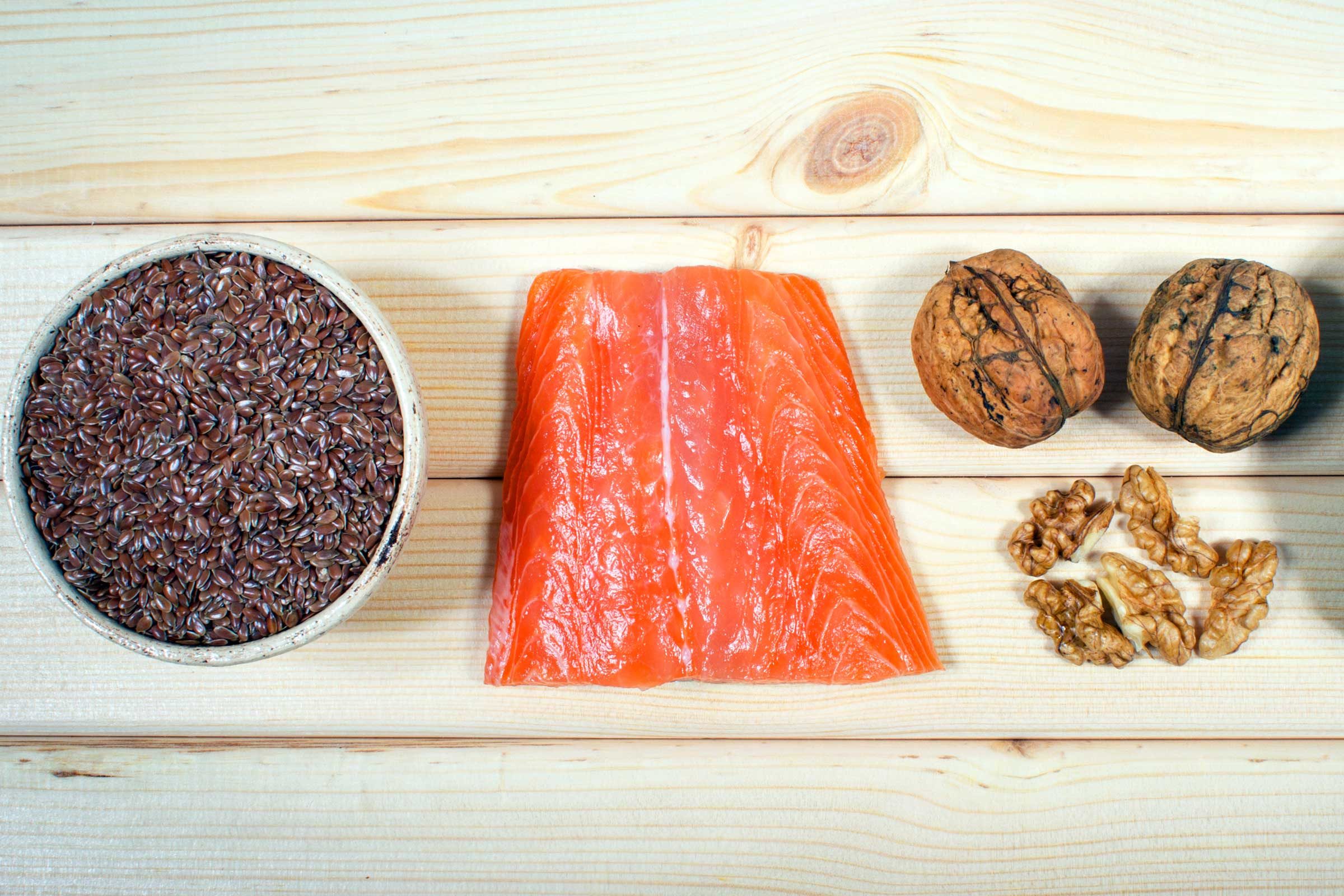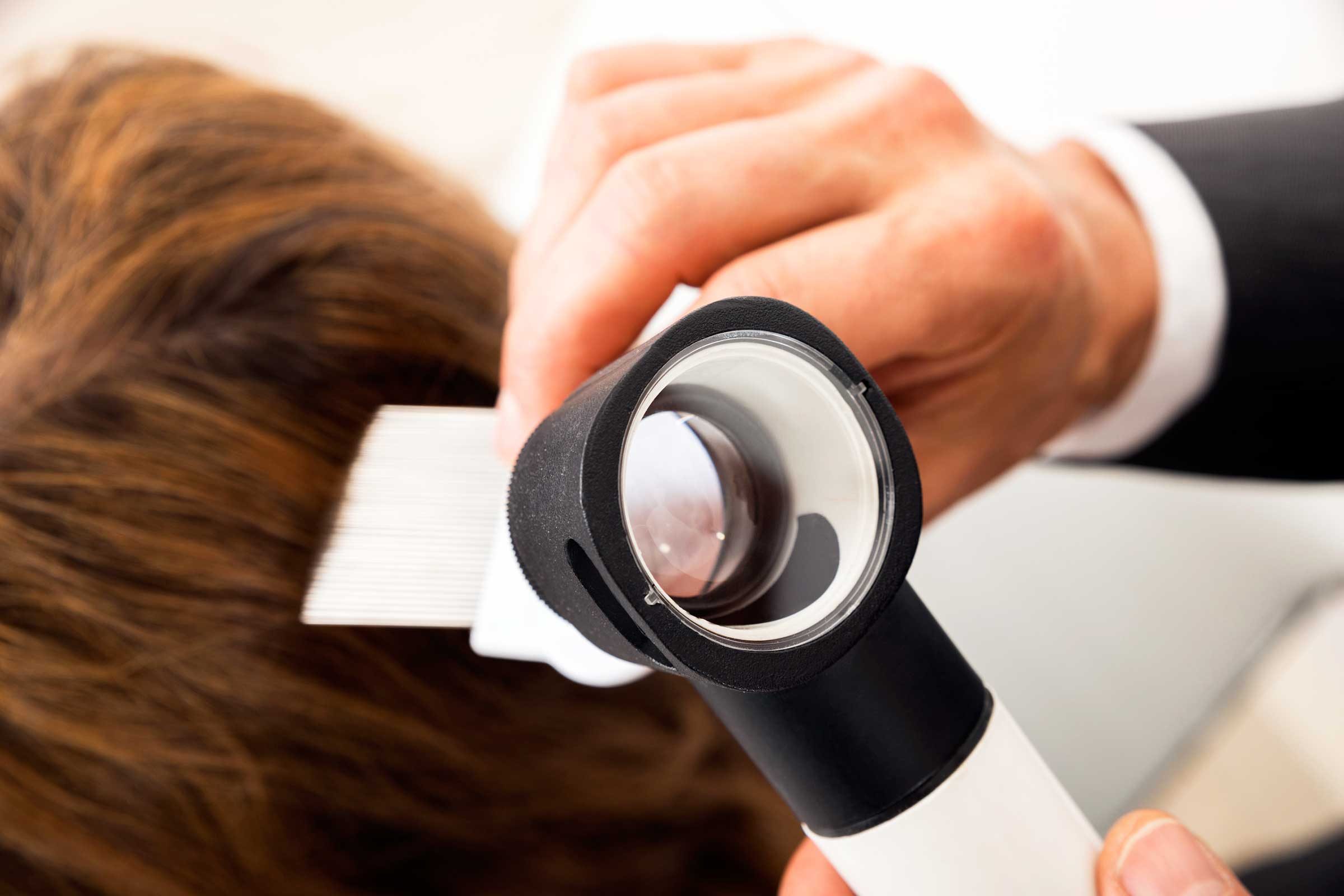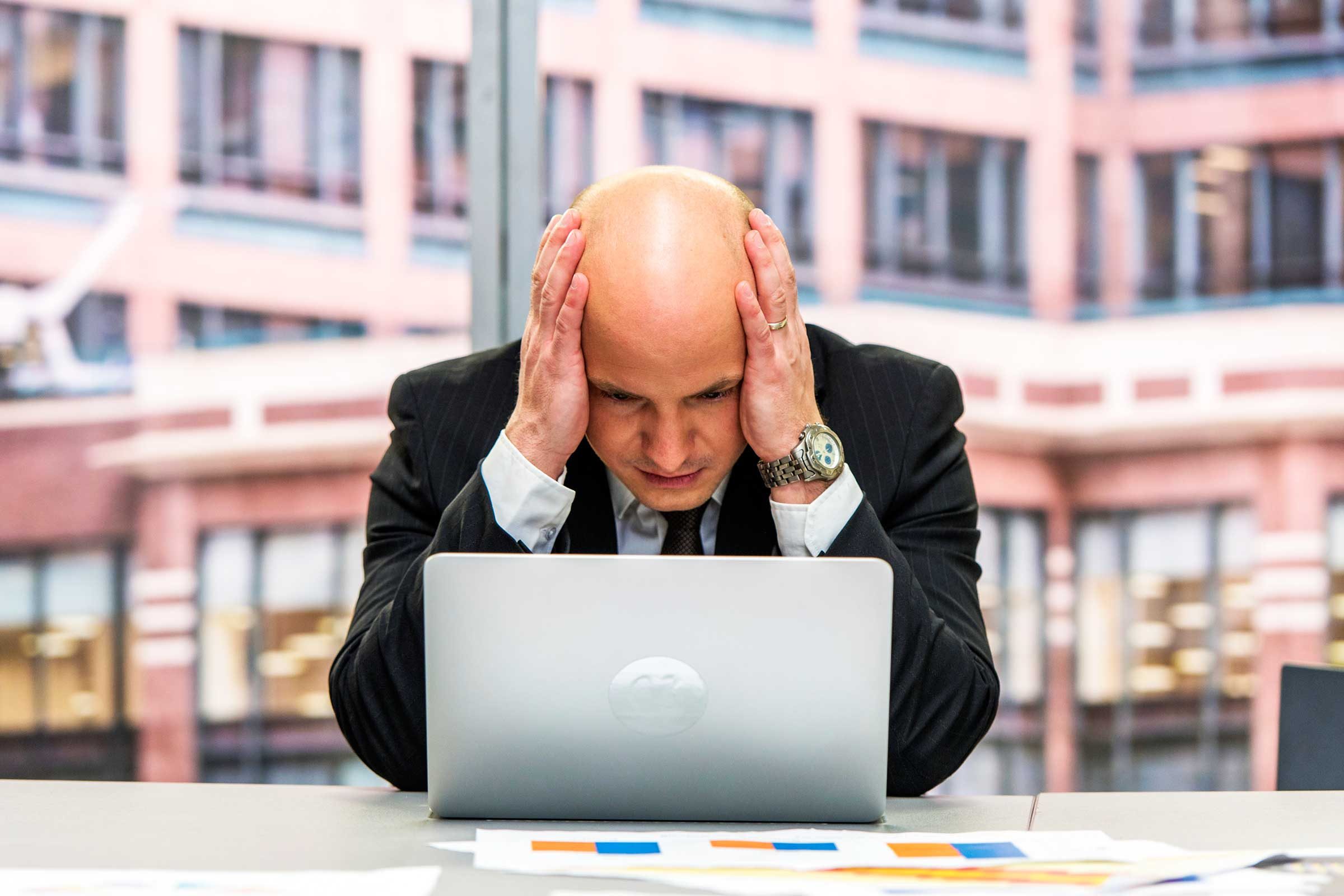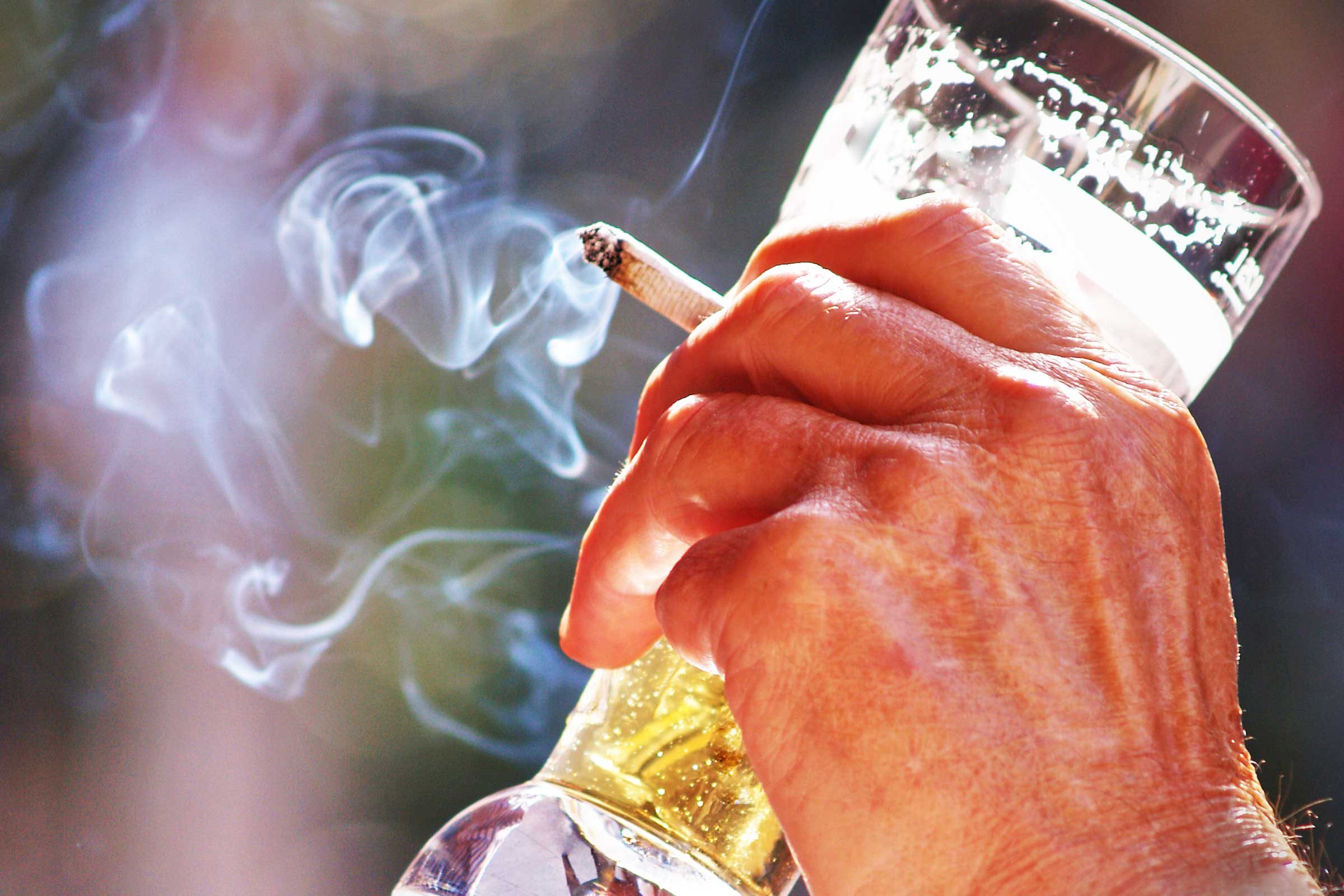
Watch what you eat
Healthy eating habits can do wonders for creating thicker and fuller hair. Lean protein found in fish, lean meats, and soy supports hair growth, and nuts and seeds are packed with vitamin E and healthy fats to provide your hair with the oil it needs to stay soft and healthy. Even spices can help: Adding cinnamon to your food can help provide necessary oxygen and nutrients to your hair. These are the 10 best foods for healthy hair.

Stay hydrated
Some 25 percent of your hair follicles are made of water and when you’re dehydrated, new follicles may be weak.

Take your vitamins
Next to stress, genes, and medical issues, vitamin deficiency is a primary reason for hair loss in men. To help prevent balding, get enough vitamins from a well-rounded diet. Vitamin A is helpful in regulating the synthesis of retinoic acid in the hair follicles. Vitamin B can help you reduce your stress levels (a contributor to hair loss) while vitamins C, D, and E help your body maintain the necessary nutrients that it needs to remain healthy. Here are 7 other reasons your hair might be falling out.

Get an expert opinion
Ask a dermatologist how to prevent hair loss, and more than likley he or she will tell you to be proactive and work to solve the issue before it starts or gets worse. According to Seamour Weaver, MD, of Dr. W Dermatology, the first step is to see your dermatologist to have them determine what the cause of your hair loss might be and what to do about it. They can talk to you about what medications you take, what hair products you use, as well as get a family history. The answer may be as simple as changing a medication that has hair loss as a side effect.

Avoid the “man bun” and other tight hairstyles
Be careful if you are a fan of tight hairstyles such as “man buns.” According to Tiffany Masiello-Helt, a cosmetologist at Precision, a clinic out of Ohio, “these hairstyles can result in a condition known as traction alopecia which is a hair loss condition that occurs when your hair is under extreme tension, creating a constant pulling which inevitably damages the hair follicles.” It may not seem important when you’re younger, but your choice of hairstyle could determine whether you hair sticks around later in life.

Talk to your doctor about hair loss medications
When it comes to how to prevent balding, several medications and treatments are on the market that may slow or prevent hair loss in men. One of the most well-known is Minoxidil, otherwise known as Rogaine. Rogaine, an over-the-counter foam, has been shown to prevent hair loss and may promote hair regrowth in some. You apply it directly to your head twice daily. It is more efficient at growing the hair back on the crown and less so at the front of your head. Finasteride, or Propecia, is a prescription pill you take daily. It is important to note that both these medications must be used continuously for benefits to last. They are sometimes used in conjunction with one another. Speak to your dermatologist about the best course of treatment for your hair loss. You’ll never guess the most common time of year for hair loss.

Manage stress
Some men may even stress so much about losing their hair that the stress they create leads to additional hair loss. High levels of stress can result in numerous medical hair loss conditions including telogen effluvium (a condition that essentially pushes your hair out of your head), trichotillomania (a man’s urge to pull his hair out of his scalp), and alopecia areata (where your immune system attacks the hair follicles). It is best to manage this stress by reevaluating the parts of your life that are causing this tension while implementing stress-easing techniques such as practicing deep breathing or engaging in daily exercise.

Limit your smoking and drinking
It’s common knowledge that smoking and excessive drinking can do terrible things to our bodies, but you may not have realized that these habits can affect your hair as well. There is a growing list of studies that show that smoking and drinking can be a supplemental cause of hair loss. Smoking can be an issue because it impacts the blood flow to your hair follicles, while drinking alcohol in excess can cause dehydration and nutritional deficiencies. Find out the 8 things your hair is trying to tell you about your health.

Regular exercise can help
You know that exercise is good for your body, but did you know that it can be great for your hair as well? Exercise is a proven stress reliever and promotes circulation and good health overall, which may encourage hair growth.

Talk to your doctor about a supplement
There are lots of supplements on the market for hair loss prevention and regrowth, though it’s important to talk to your doctor about which brands will be safe and effective for you.
